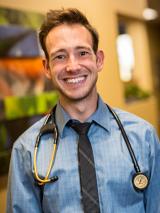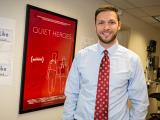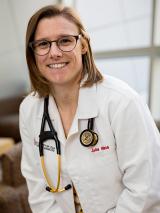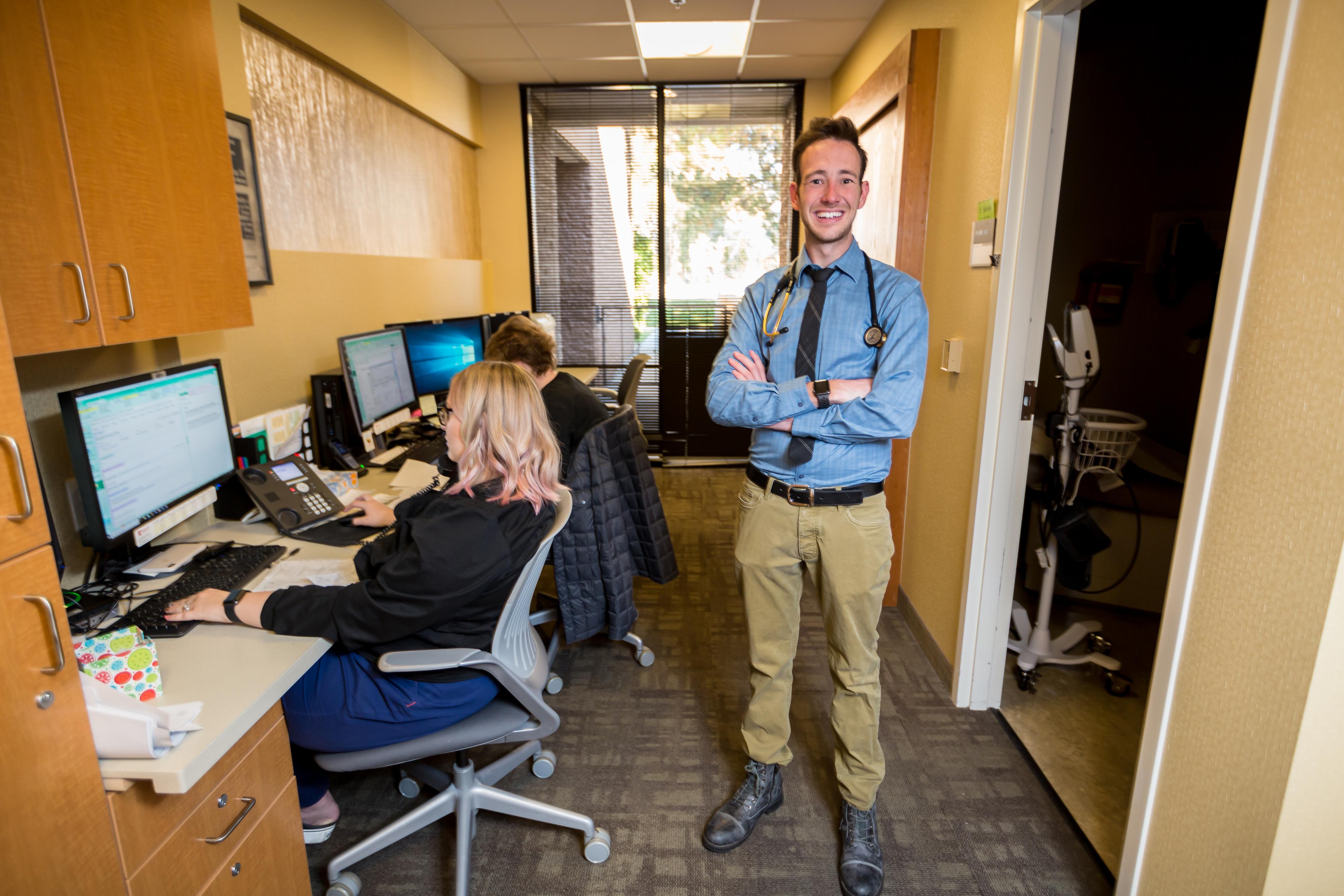
Redwood Health Center's Free Prep Clinic Battles HIV in the Face of Enduring Stigma
Since the height of the AIDS epidemic, we’ve come a long way. We have answers now, along with a strategy named PrEP (pre-exposure prophylaxis) that involves a daily pill more than 95% effective at preventing HIV. The medication is expensive, but pharmaceutical companies help drive down the price for the uninsured.
In spite of these advancements, one thing hasn’t changed about HIV: the stigma. In fact, it remains so pervasive that most at-risk populations don’t even know they need PrEP, let alone how to get the medication.
Jorgen Madsen, MD (right), a former University of Utah medical student, knows this all too well. During a routine hospital visit in 2018, Madsen identified himself as gay for the first time. Upon learning that, the medical staff grilled him on his sexual activity and screened him for HIV against his objections.
“They didn’t believe me,” he says. “I felt so vulnerable.” Afterwards, he sat in his car in the hospital parking lot, humiliation washing over him. As he stared numbly out of the window, he cried.
Two years later, Madsen helped create a space where others can feel safe and get the health care they need. Alongside a team of doctors with the support of local nonprofit Utah AIDS Foundation (UAF), he opened a free HIV PrEP clinic in the heart of Redwood Health Center.
The clinic offers sexual health screenings, education, and medication—and it’s just the second free PrEP clinic in the nation. U of U Health donates the space, while physicians and medical students volunteer to provide care at no cost to patients.
“We treat based on need, not a patient’s ability to pay,” says co-founder Adam Spivak, MD (right), an infectious diseases specialist at U of U Health. “Health is not a privilege—it’s a right.”
The PrEP clinic was created to make HIV treatment and prevention available to at-risk populations throughout the state. HIV prevention methods like PrEP are funded by government programs and charitable donations. Care for the HIV-positive is funded by the Ryan White Act. The 1990 bill, signed by Senators Ted Kennedy and Utah’s Orrin Hatch, also supports 2,500 HIV/AIDS prevention programs.
The PrEP clinic and UAF work intimately together: UAF sends referrals to the clinic, while clinic founders offer a valued medical perspective on emerging treatments. Ahmer Afroz, executive director of UAF, credits the clinic as one of Utah’s only direct interventions against HIV. “The PrEP clinic is a game changer,” he says. “It’s a perfect marriage of medicine, public health, and community.”
Since 2018, the clinic has served more than 300 patients, many of whom identify as LGBTQIA+ and are uninsured or under-resourced. This population is at-risk but hard to reach—as of 2016, nearly
60% of new HIV diagnoses in Utah are among those 35 years old and younger. But that makes the work even more rewarding.
The four co-founders, including Susan Keeshin, MD, an infectious diseases specialist, and Julie Weis, MD (right), a classmate of Madsen’s, focused on access and affordability. Above all, the team wanted to create a place of acceptance.
“The clinic is a space where we can talk about the excitement of a date they had, or how the family is reacting to coming out,” Madsen says. That’s why they offer counseling for those experiencing stigma, isolation, and depression.
Keeshin sums up their holistic model well: “You share their highs and lows, go to their birthday parties,” she says. “They’re not just a diagnosis.”



